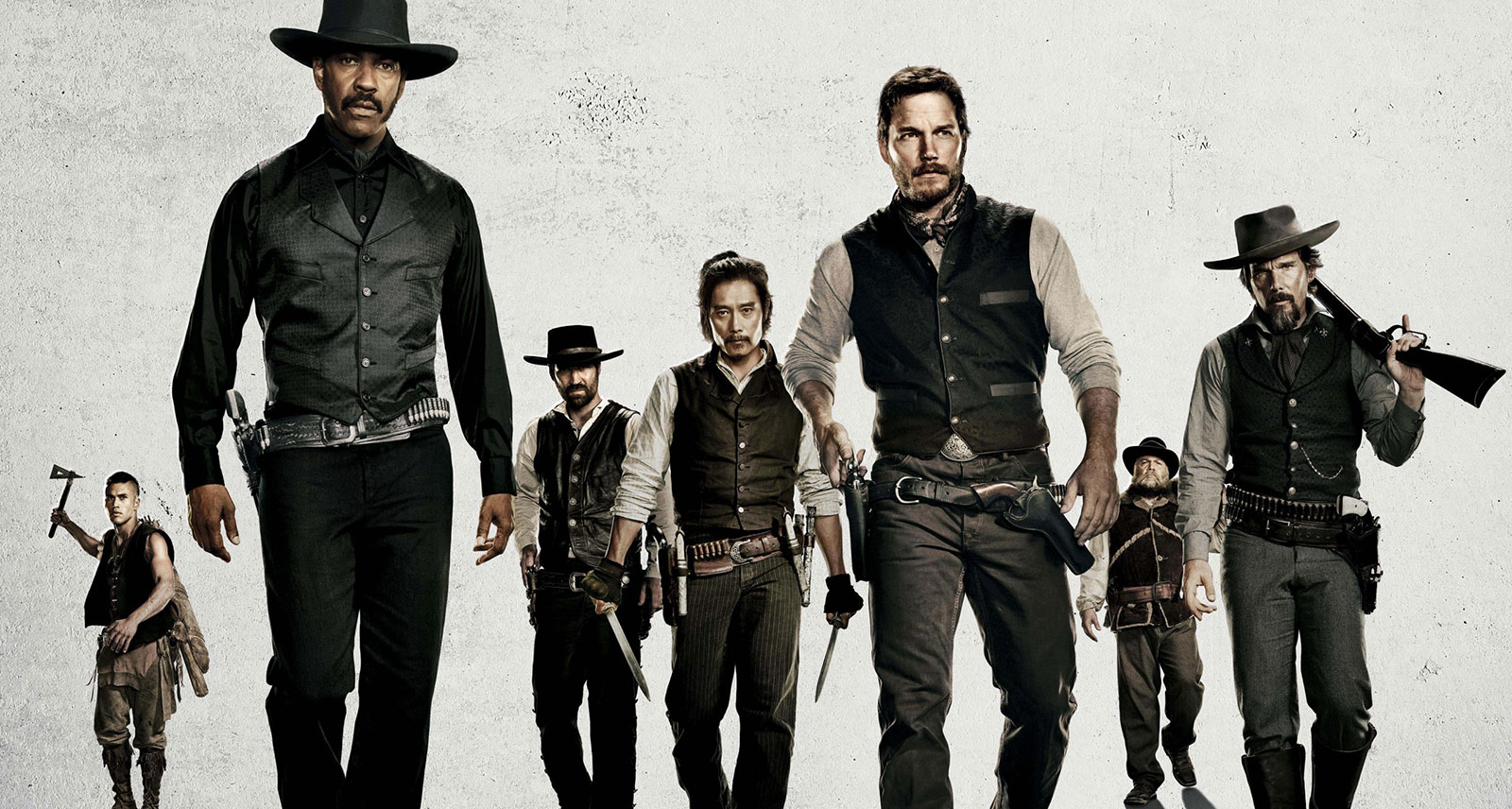‘The Magnificent Seven’ Brings Some Much-Needed Diversity to the Western
Antoine Fuqua’s The Magnificent Seven reboot starts with a moment you’ve seen a thousand times before in a thousand Westerns: a mysterious gunslinger rides into town and the place boards up. Only this time, something’s different. Namely, the movie’s man in black also happens to be a black man.
It’s an image that feels even more potent right now, the sight of a black man with a gun riding through town, making all the white folk nervous. But Fuqua’s intent wasn’t to make a political statement, he said during a press conference at this year’s Toronto International Film Festival, where The Magnificent Seven played as the opening night movie. “I just wanted to see Denzel Washington on a horse,” he joked.
“Denzel walks into a room and the room stops. Clint Eastwood walks into a room and the room stops. Is it because he’s a gunslinger, or is it because of the colour of his skin?” he asked.
Intentional or not, all it takes is one look to see that Fuqua’s Seven don’t look like your typical Western cast. AKA they’re not all white. (Or worse, white guys playing Mexican or Native American.) That starts with Denzel at the top, but also extends out to Korean superstar Byung-hun Lee playing the James Coburn part from the original Magnificent Seven, now re-imagined as a former indentured servant. Or Manuel Garcia-Ruflo as a Mexican outlaw who actually hails from Mexico, and Alaskan-born Native actor Martin Sensmeier playing a Comanche warrior.
“As an audience, it would look like Antoine cast that way on purpose,” Byung-hun Lee said when we sat down during TIFF. But he thinks their diverse cast is just a more realistic reflection of the Old West than we’re used to seeing. “At the time, there were a lot of Chinese people, due to the railroad. There were African-Americans and Mexicans, of course, and Native Americans,” said Lee. “It’s all very natural.”
What isn’t natural, though, is to see that diversity depicted onscreen. (#WesternsSoWhite.) John Sturges’ original Magnificent Seven – itself a remake of Akira Kurosawa’s Seven Samurai – is an undisputed classic of the genre and yes, for a Western, racially, it’s pretty cool. (Yul Brynner and Steve McQueen are first introduced as heroes by standing up to a racist posse.) But the 1960 film still features Charles Bronson as the half-Mexican, half-Irish Bernardo O’Reilly, a German named Horst Buchholz playing a campesino named Chico, and Eli Wallach putting on a sombrero and Mexican accent to play the film’s villain.
When I bring up the original Magnificent Seven’s faux-Mexicans, Sensmeier chimes in with a few casting injustices of his own. “How about Jack Palance playing Geronimo,” he laughed. Or the Italians playing Native Americans in spaghetti Westerns, added Garcia-Ruflo. And it’s not like Western whitewashing is just some ‘60s relic either. See: Johnny Depp’s Tonto in The Lone Ranger. That was three years ago.
“I grew up with Westerns. When I was a kid, I had the gun and cowboy hat. So yeah, it’s like a dream come true,” Lee said of working on this movie. It’s just a dream that would’ve been harder to realize fifty-odd years ago. “The world was different. They were more wholesome,” Fuqua said of Sturges’ cowboys. “I don’t think they ever got any dirt on them.” Denzel’s take was more blunt: “None of them were black either.”
He’s not wrong. And representation is important. In Sturges’ movie, Buchholz’s Chico helps save the day by donning bandoliers and a sombrero, helping him “pass” as one of Calvera’s gang. Go and watch it again; it looks just as ridiculous as that sounds. And that’s exactly the type of cliché Garcia-Ruflo was looking to avoid here. “Being Mexican, I was a little worried.” But he said Fuqua encouraged him and the other actors to create their own unique characters. Not caricatures. “He gave us a lot of freedom,” agreed Sensmeier. “He’s like, ‘You’re the Native person, you pick your wardrobe. And I’ll approve or not.’ ”
“I put lines in Spanish and nobody knew what it meant, and he trusted me,” said Garcia-Ruflo. “I remember I said something in Spanish and some producer or writer, I don’t even know what he was, was like, ‘I don’t think he can say that…’ Antoine was like, ‘No, he can say that! …What does it mean, Manuel? No, that’s unique. Say it!’ ” he laughed. “As actors, we appreciate that.”
Let’s be honest though: Hollywood’s diversity problem goes a lot further than Westerns. And Fuqua praised MGM and Sony for putting their money where their mouths are when it comes to backing more diverse casts. “Is Hollywood changing? You’ve got to give the studio credit when they do something like this,” he said. “The only thing they wanted to know was, can I get them? Can I get Denzel?”
“Westerns change with the times we’re in,” said Fuqua. “If we were sticking to just one way of doing something, then all Westerns would be all white guys looking like John Wayne and John Ford movies,” he added. “We just made our film based on the world we live in right now.”
It’s about time.










